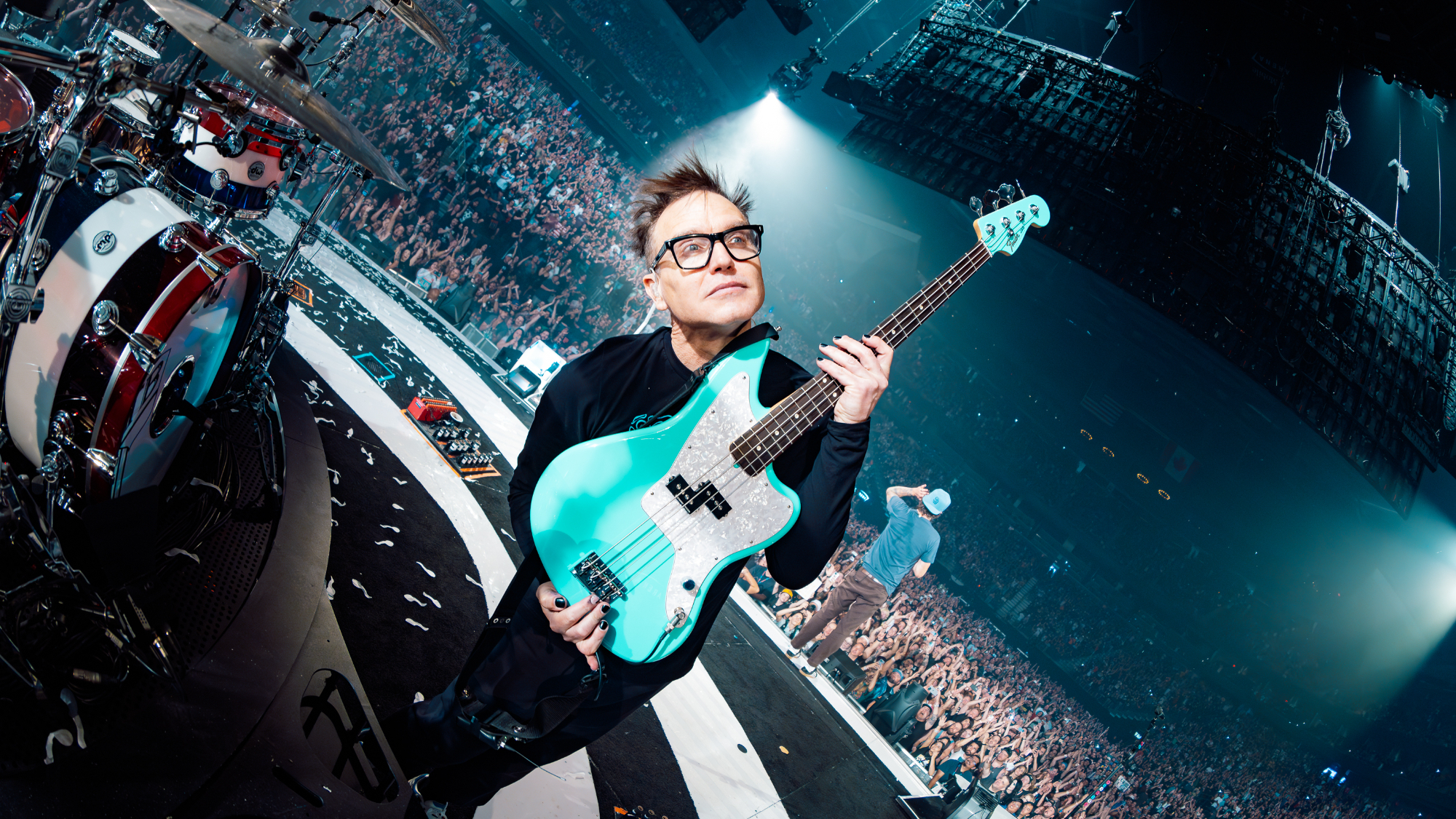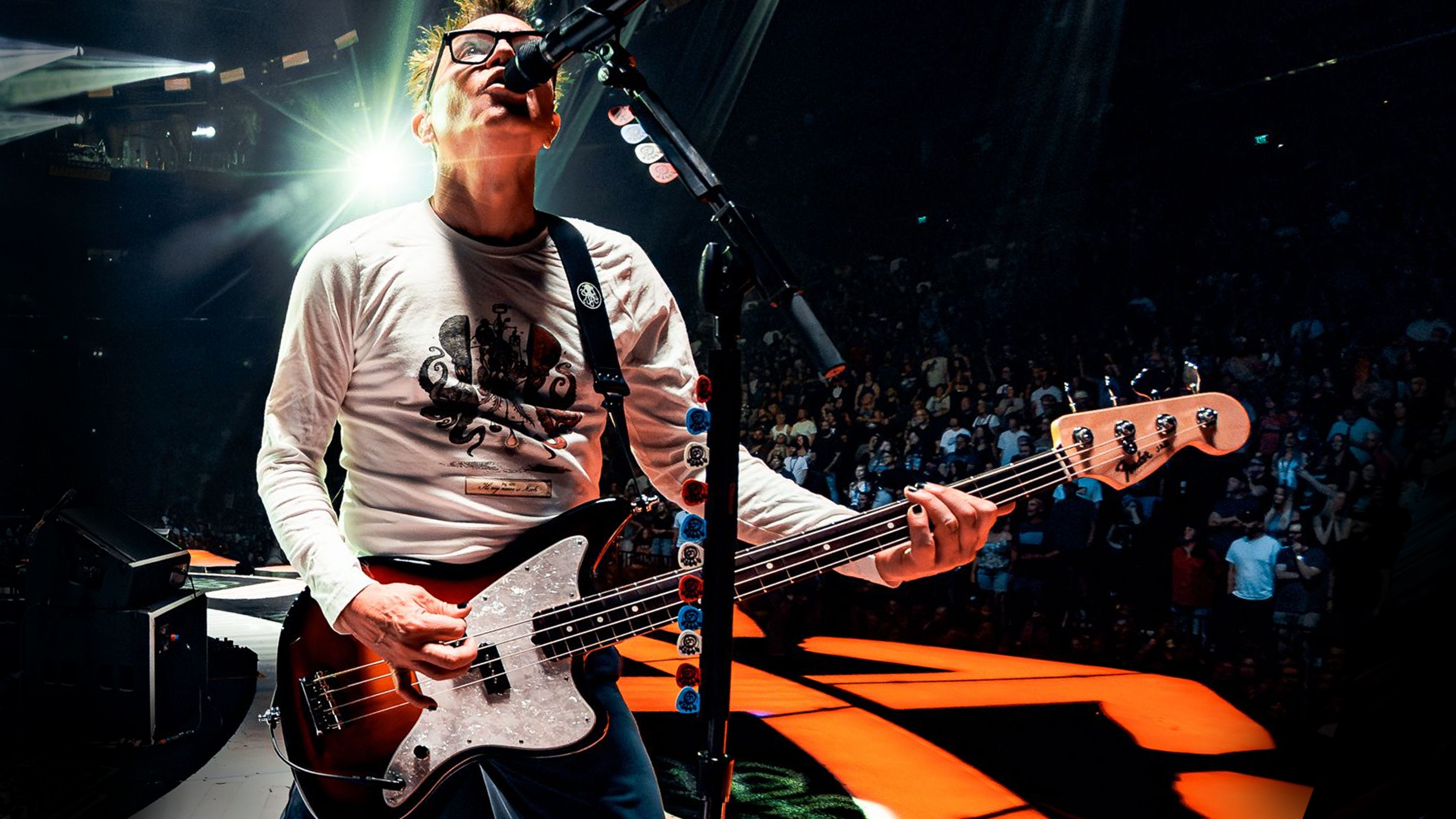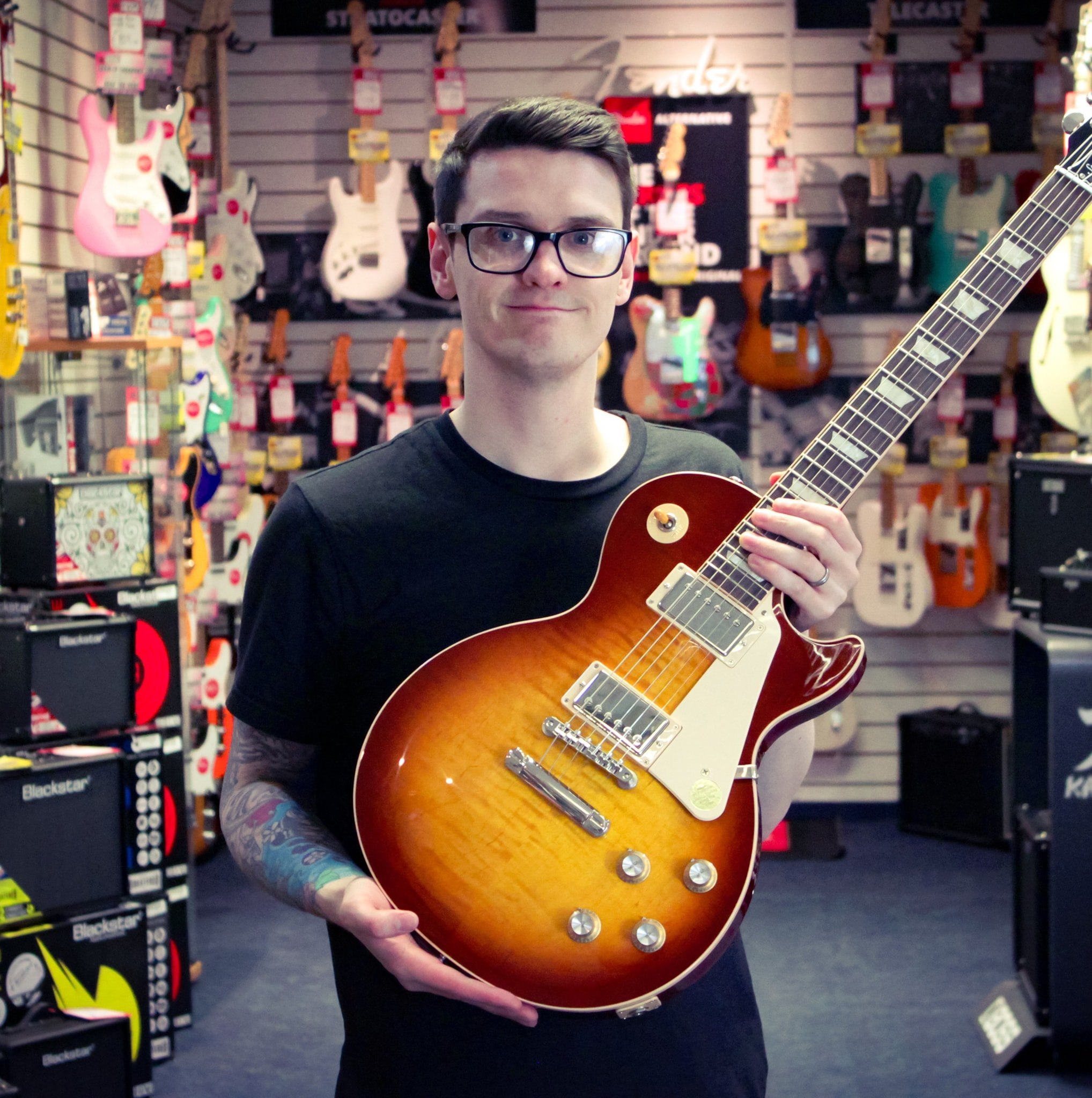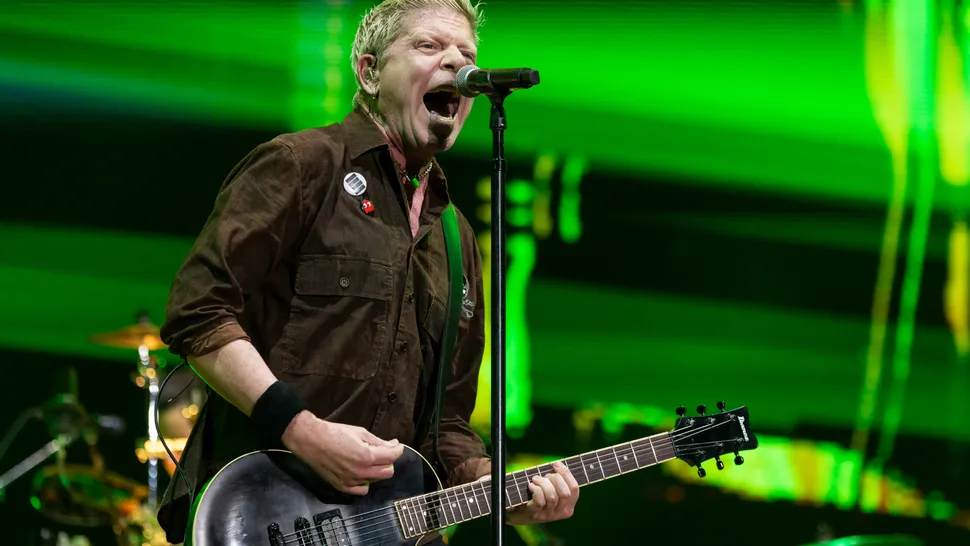"Signature models mean just that. You play the same bass I play, and you're probably better at it than I am": Blink-182's Mark Hoppus gives us the lowdown on his brand-new Fender bass and discloses why he has switched to the Neural DSP Quad Cortex
The pop-punk bassist discusses his new signature model, what got him interested in Fender basses, what he believes is his greatest riff and more

It seems fans can't get enough of the newly reunited Blink-182. Since the pop-punk titans buried the hatchet with original co-vocalist and guitarist Tom DeLonge last year, the trio has exploded back on the scene with the highly anticipated record, One More Time and its deluxe variant, the aptly named One More Time Part 2, which dropped earlier this month. The band has also taken the revived line-up on the road, playing to sold-out crowds across the globe. Blink-182 are firmly back to retake their crown as one of the genre's most influential bands, and Blink-fever shows no signs of slowing down any time soon.
Since their return, DeLonge has relaunched his incredibly popular single-pickup Stratocaster and, earlier this year, released a brand-new model in the form of a hollowbody Starcaster, which, of course, was decked out with many of the same specs as his previous release. Not to be outdone by his bandmate, Mark Hoppus has added a new model to his ever-growing collection of signature Fender basses; enter the Fender Mark Hoppus Limited Edition Jaguar Bass.
We caught up with Mark to get the lowdown on his all-new low-end machine, what he thinks is his signature bass riff and why, like many of his contemporaries, he has chosen to ditch the amps in favour of digital modelling.

Why would I put out a bass that was less than what I play onstage? Signature models mean just that. You play the same bass I play, and you're probably better at it than I am
Hoppus has been a lifelong Fender fanatic, using several of the Californian guitar giant's most popular instruments throughout his career. When asked what started his love affair with Fender, Hoppus said, "The first time I saw Simon Gallup from The Cure play a P-Bass in the Just Like Heaven video, I was like, 'THAT is the instrument I want to play.' It just looked so cool, he says enthusiastically. "Then, when I started playing them, they're just great basses. Workhorses. The standard."
Now, if you've been paying attention at the recent run of Blink shows, you'll have undoubtedly spotted Hoppus proudly playing one of his new Jaguar basses on stage. Walking us through the specifications of the offset bass, Mark says, "It has a Jaguar body, a Jazz Bass neck, C-style, rosewood fretboard, pearloid pickguard and one volume knob because I don't need a tone knob – my tone comes from the wood, which in this case is alder, the maple neck, and of course, it comes from my pickups."
Hoppus is quick to point out that this model is an exact replica of what he is currently touring with – and the model even features on the band's new records. "It was super important that the basses I play be the same ones people can buy. They're great basses," he says. "Why would I put out a bass that was less than what I play onstage? Signature models mean just that. You play the same bass I play, and you're probably better at it than I am," jokes Hoppus. When quizzed about what instruments he used in the studio, Mark stated, "I used my signature models! Especially on One More Time Part 2. They're the production models of what we just released."

A unique feature that Mark has carried over from his popular Jazz Bass model is the reversed Seymour Duncan Quarter Pound P-Bass pickup. We wanted to know what led Hoppus to this sonic discovery – and if he could remember the first time he tried the new pickup configuration in a bass.
Want all the hottest music and gear news, reviews, deals, features and more, direct to your inbox? Sign up here.
I'd try a Starcaster bass. I'm always open to new ideas and trying new configurations, although I feel like where I am now is pretty hard to beat
"I was talking with Jerry Finn [producer] about pickups and trying to fix the way the E and A strings sounded woolly and boomy while the D and G strings sounded a bit doinky. We got nerdy and figured that since the E/A pickup is usually closer to the neck, it gets way more of the swing of the strings, giving them more body and low-end," says Hoppus. "The D/G pickup was closer to the bridge, getting more attack and less low-end," he continues. "Inverting the pickups switched those effects, giving the E/A more punch and the D/G more body. [To me, it's] much more even-sounding."
Another hangover from the previous bass to proudly display the punk veteran's name is a 34" scale length. Traditionally, Jaguar basses opt for a shorter scale, but Hoppus has decided to stick to the familiar Jazz Bass neck he has become accustomed to. When asked what guided this decision, Hoppus voiced his affection for the feel of the Jazz Bass. "I just love the feel of a Jazz neck," declares Mark. "I used to use only P-Bass necks, but in the past few years, I changed to Jazz and [now] I prefer it."
Now, this new Jaguar is listed as a limited edition, but we couldn't pass up the opportunity to see what else Hoppus and Fender may be cooking up. Since Tom has recently released a Starcaster – a model that also has a bass variant – we wondered if Mark had thought about matching his bandmate, but judging by his response, it doesn't look likely. "I hope Fender wants to continue making lots more models," he says. "I'd try a Starcaster bass. I'm always open to new ideas and trying new configurations, although I feel like where I am now is pretty hard to beat."

I love the romance of physical tube amps, but being able to have all my tones in one box is amazing
Speaking of Tom's move from a solid body to a semi-hollow, we were curious to know if this switch in guitar has affected how Mark approaches his bass tone for the latest run of Blink-182 shows. "Nah, not really. He does his thing, and I do my thing. I just want my tone to cut through and lay the foundation. Tom gets to go wild on top of that", says Mark.
"I try to keep the stage sounds close to studio tones, but with a bit more edge," he continues. It's a live show, so I'm not concerned with everything being [a copy] of what we did in the studio, but I keep it in the same world. Concert performances need a little something extra."
In recent years, the tonal heart of Blink's live sound was the Kemper Profiler, but it seems that the bassist has followed in the footsteps of his compeers and has now made the switch to the Neural DSP Quad Cortex. Hoppus divulges, "I used Kempers for a long time but have recently switched to a Neural Quad Cortex. Modellers have come so far in the past decade that we were in a studio with my full amp cabinet setup on one channel and the Kemper profile of it on another channel, and no one in the room could tell the difference. At that point, I was all in," confidently states Hoppus. "I love the romance of physical tube amps, but being able to have all my tones in one box is amazing. I went from three 810 cabinets and a case with three heads to one rack with everything I need – including redundancies. For touring, it's a no-brainer."
Now, with a career as long as Mark's, it's refreshing to hear that the punk-rock bassist hasn't lost his love of this humble four-stringed instrument. "I love playing bass," says Mark. "I love what bass does in a song – connecting the melodies of the guitars and vocals with the rhythm of the drums. It's what I do in our band," he continues. "I feel like I'm the bridge between Tom and Travis. Bass is a working man's instrument. I've never wanted to play anything else," proudly states Hoppus.

When asked how he has changed as a bass player over the years, Mark plays down his talents by saying, "I think I'm pretty much the same player I've been for thirty years. My technique is imperfect but solid enough. I guess now I pay way more attention to Travis's kick," he says. In the beginning, it was all eighth-note downstrokes. Now, I do a lot more syncopation."
We probed further into the bass player's songwriting to see which one of his iconic bass riffs he feels defines him best as a player. Now, while Mark could've easily picked one of his many hit songs, instead, he opted for the opening track from their '95 studio release, Cheshire Cat. "Probably the intro to Carousel? I wrote it by accident while trying to learn Für Elise. Then, soon after, I met Tom for the first time and showed it to him. He'd been writing something similar, and we put the two ideas together. That was the first song we wrote together, [in] 1992."
Lastly, we end by asking Mark if he could give one piece of advice to a young player picking up the bass for the first time, what would it be? "Practice all the time, and have fun!" he exclaims.
Available in two distinct finish options, Sea Foam Green and 3-colour Sunburst, and paired with a signature deluxe gigbag, the new Fender Mark Hoppus Limited Edition Jaguar bass presently retails for £1,319/$1,399 and is on sale right now. See Fender for more details.

I'm a Senior Deals Writer at MusicRadar, and I'm responsible for writing and maintaining buyer's guides on the site. As part of my role, I also scour the internet for the best deals I can find on gear and get hands-on with the products for reviews. My gear reviews have been published in prominent publications, including Total Guitar, Guitarist, and Future Music, as well as Guitar World.com. I've also had the privilege of interviewing everyone from Slash to Yungblud, as well as members of Sum 41, Foo Fighters, The Offspring, and many more.
In a previous life, I worked in music retail, selling everything from digital pianos to electric guitars. I'm also a fully qualified sound engineer who holds a first-class Bachelor's degree in Creative Sound Production from the University of Abertay.
